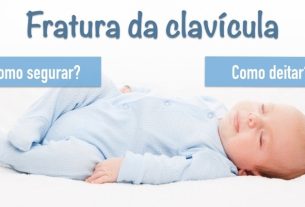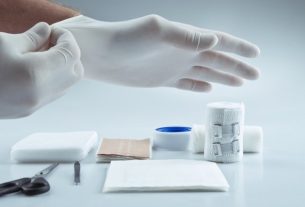To recover from a fracture more quickly, it is recommended to rest and avoid exertion, increase vitamin D levels, eat a diet rich in calcium and vitamin C and take collagen, as this way it is possible to promote bone strengthening. Furthermore, after the immobilization period ends, it is also interesting to undergo physiotherapy.
Full recovery time from a fracture can be 20 days to 6 months or more, depending on the person’s age and ability to recover. Generally, children recover from a fracture in less than 2 months and the elderly can take up to 1 year to recover completely, especially when it comes to a femur fracture, for example. See more about fractures.
This time also varies according to the type of fracture because open or comminuted fractures take longer to heal completely, and the younger the person, the greater their capacity for recovery and bone remodeling. Prolonged immobilization in the elderly can worsen osteoporosis, however, it is essential to remain in a cast so that the bone can be consolidated.

What to do
Some tips that can help a person recover faster from a fracture are:
1. Avoid making efforts
It is important that the person avoids exerting too much effort using the fractured limb, as this can promote bone healing and reduce immobilization and recovery time. Therefore, it may be interesting for the person to rest the immobilized limb in a higher position, avoiding swelling and speeding up recovery.
On the other hand, it is also not recommended that the person rest completely, because it can favor the loss of muscle mass in the area and stiffness of the joint, which can cause muscle hypotrophy and decrease density, favoring the occurrence of more fractures.
So, some things that can be done and that do not require effort are to move your fingers several times a day when your arm, hand or leg are immobilized, and place the affected part in a basin of warm water and perform some exercises while still in the water. can help, as warm water will reduce the sensation of pain and movements will be easier to perform.
2. Eat a diet rich in calcium and vitamin C
During the recovery period, it is interesting to increase your consumption of foods rich in calcium, as this mineral helps to increase bone density and thus promote healing. Therefore, it may be recommended to increase the consumption of milk and dairy products, avocado and broccoli, for example. Discover other foods rich in calcium.
Furthermore, consuming more foods that are sources of vitamin C also helps you recover faster from a fracture because this vitamin, due to its properties, can act to promote the regeneration of all tissues. Therefore, it is also important to consume foods such as orange, lemon, acerola and pineapple, for example. See other food options rich in vitamin C.
It is also important that during recovery, the person avoids alcoholic beverages and reduces the amount of sugar consumed during the day, as this can directly interfere with bone healing and increase recovery time.
3. Increase vitamin D levels
Vitamin D plays an essential role in the body and also helps in the process of calcium absorption in the intestine and promotes the entry of this mineral into the bones. Therefore, it is important that vitamin D levels are increased during recovery so that healing happens more quickly.
Therefore, to increase vitamin D levels in the body, it is recommended to spend at least 15 minutes a day exposed to the sun, in addition to increasing the consumption of foods rich in this vitamin, such as fish, egg yolks, seafood, milk and derivatives, for example.
4. Take collagen
In some cases, the nutritionist or orthopedist may recommend the use of collagen to promote healing and reduce recovery time. This supplement is mainly recommended when the fracture occurs close to a joint or when it involves a joint, because collagen ensures faster formation of cartilaginous tissues, favoring healing.
5. Do physical therapy
Physiotherapy is indicated mainly after the period of immobilization, when the fracture was very serious and there was immobilization for a long time. Thus, physiotherapy can help to fully recover muscle strength and joint mobility, helping the person to recover from the fracture more quickly.
The immobilized joint tends to become very stiff and to recover its movement it is advisable to carry out joint mobilization exercises and strengthening exercises are essential for the person to recover completely.
In relation to complete fracture recovery, it is important to take into account the severity of the fracture and immobilization time. Rarely will a person who has been in a cast for more than 30 days be able to perform all the movements that the joint allows in less than 4 or 5 days. However, over time movements may return to normal.

Sign up for our newsletter and stay up to date with exclusive news
that can transform your routine!
Warning: Undefined array key "title" in /home/storelat/public_html/wp-content/plugins/link-whisper-premium/templates/frontend/related-posts.php on line 12
Warning: Undefined array key "title_tag" in /home/storelat/public_html/wp-content/plugins/link-whisper-premium/templates/frontend/related-posts.php on line 13



